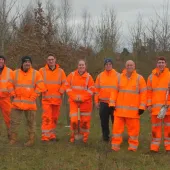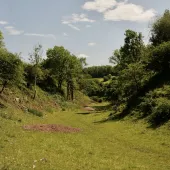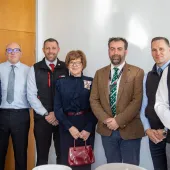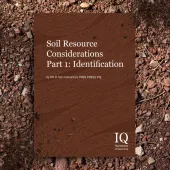Funding from Hills helps create dragonfly habitats
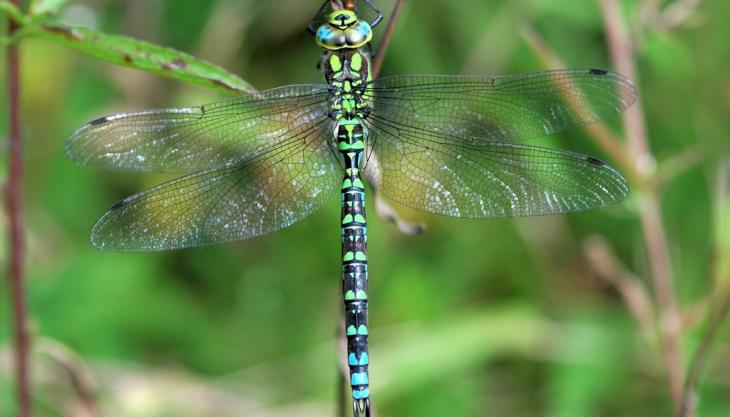
Wildlife Trusts reaping benefits thanks to funding from The Hills Group via the Landfill Communities Fund
NEARLY four years after a project that saw new ponds created at Wiltshire Wildlife Trust’s Lower Moor Farm complex, near Cricklade, to help dragonflies move more freely and start to populate other parts of the country, the Trust is now reaping the benefits. Big numbers of dragonflies and damselflies can now be seen across the Sandpool section of the site following the creation of ponds and scrapes.
Sandpool was dug for gravel and then used as a landfill site before being acquired by the Trust in 2009. Since then a number of habitat enhancements have occurred, including the construction of the new ponds and scrapes. These provide a link to the rest of Lower Moor Farm and into the Cotswold Water Park, and allow species such as the hairy dragonfly, downy emerald and red-eyed damselfly opportunities to exploit new territories.
Working together with Gloucestershire Wildlife Trust, and with generous funding from The Hills Group via the Landfill Communities Fund, the aim of the project was to stop the decline and isolation of dragonfly and damselfly populations in the county.
Thirty four species of dragonfly and damselfly have been recorded in Wiltshire, of which 20 are found at the Lower Moor Farm complex. Wildlife corridors were created in order to encourage nationally important species, such as the ruddy darter and the scarce and the declining downy emerald dragonflies, to move more freely between Wiltshire and Gloucestershire.
‘The funding from Hills has allowed us to create dragonfly habitats and make links for species across the landscape. This has been a great success and we want to continue the work, so over the winter volunteer work parties will help cut back and pollard willows and other vegetation growing around the ponds to ensure that dragonflies always have somewhere to lay their eggs,’ said Neil Pullen, Wiltshire Wildlife Trust reserves manager.
Isabel Clark from Gloucestershire Wildlife Trust said: ‘We were so pleased to work with Wiltshire Wildlife Trust on this important project in the Cotswold Water Park, creating new scrapes and ponds for the benefit of dragonflies and other species. It has been a great success, with reports of both the ruddy darter and migrant hawker at the new areas in subsequent years. This should aid the movement of the species in response to climate change and other environmental factors, which will subsequently contribute to their future conservation.’



